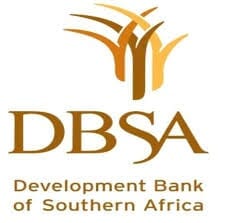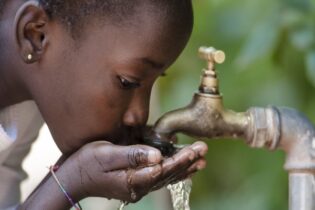The Development Bank of Southern Africa (DBSA) is pleased to announce a historic disbursement record in key strategic infrastructure projects in South Africa and SADC region.
Total disbursements increased by 39.1% from R9.2 billion in 2012/13 to R12.7 billion, supporting 116 projects, for the 2013/14 financial year. 72% of this is related to projects in South Africa, with the remaining 28% for other parts of the SADC region. Speaking at the release of the 2013/14 annual integrated results, Patrick Dlamini, Chief Executive of the DBSA said, “Through the provision of innovative infrastructure solutions, the DBSA seeks to support the development of projects critical to the country’s development agenda and activities that are directed to support, amongst others, the financing of energy generation, water and road infrastructures, as well as municipal infrastructure critical to the delivery of electricity, water, sanitation and refuse to households.” Municipalities a focus In support of municipalities, key delivery agents for social services in the country remained an important focus area for the DBSA. The ability of many municipalities to render services to their communities, including access to financial resources for the implementation of infrastructure programmes, is under increasing pressure. In some instances the former contributes to sporadic service delivery protests. Approvals for the year under review to metros amounted to R2.3 billion, while R1.9 billion was approved in favour of secondary and under-resourced municipalities. Total disbursements to municipalities were 33.3% higher than in 2012/13, with R1.7 billion disbursed during the year. Provision of finance to under-resourced municipalities nearly doubled to R219 million. Through the funding support of DBSA and other funders, it is estimated that in excess of 263 000 households would benefit from improved infrastructure once this are delivered. Supporting energyDuring 2013/4, the bank continued to support government’s energy generation programme with over R5.7 billion disbursed on power generation projects in South Africa. R3.8 billion went to the Department of Energy’s Renewable Energy Independent Power Producers (IPP) Procurement Programme. Of the R3.8 billion disbursed on the IPP programme, R826 million was committed and R867 million disbursed in favour of BBBEE enterprises. Water and sanitation infrastructure The DBSA continued its support for the development of water and sanitation infrastructure by providing financing mainly to municipalities, regional water boards and bulk water schemes undertaken by Trans-Caledon Tunnel Authority (TCTA). Throughout the year, a total of R613 million was advanced towards water infrastructure projects in South Africa.
Housing infrastructure
In an effort to assist with the eradication of housing backlogs in South Africa, the bank continued to invest in a variety of student accommodation, affordable housing schemes.
- total disbursements up 39.1% to R12.7 billion
- R6.7 billion disbursed on power generation projects,
- R3.8 billion to Renewable Energy Independent Power Producers (IPP) Procurement Programme
- disbursed R2.3 billion on transport and R919 million on water and sanitation projects
- total disbursements to municipalities accelerated 33.3% to R1.7 billion
- approvals to municipalities R2.3 billion
- successfully launched infrastructure delivery division and completed 32 schools, 560 rural houses, 41 doctors’ consulting rooms and refurbished 68 clinics
- turnaround to net profit of R787 million, (2013: loss of R826 million)
- operating income, before adjustments, increased to R2.7 billion up from R1.9 billion in 2013
- cost-to-income improved significantly to 28.4%
- positive doubling of operating cash flow generated.







